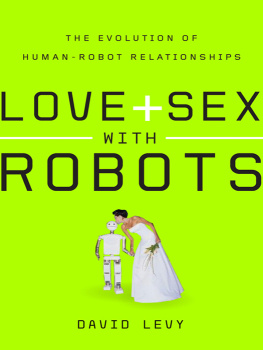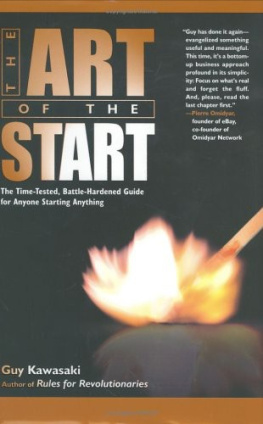Levy - Insanely great : the life and times of Macintosh, the computer that changed everything
Here you can read online Levy - Insanely great : the life and times of Macintosh, the computer that changed everything full text of the book (entire story) in english for free. Download pdf and epub, get meaning, cover and reviews about this ebook. City: New York, year: 1994, publisher: WWW.KAT.PH;Viking, genre: Detective and thriller. Description of the work, (preface) as well as reviews are available. Best literature library LitArk.com created for fans of good reading and offers a wide selection of genres:
Romance novel
Science fiction
Adventure
Detective
Science
History
Home and family
Prose
Art
Politics
Computer
Non-fiction
Religion
Business
Children
Humor
Choose a favorite category and find really read worthwhile books. Enjoy immersion in the world of imagination, feel the emotions of the characters or learn something new for yourself, make an fascinating discovery.

- Book:Insanely great : the life and times of Macintosh, the computer that changed everything
- Author:
- Publisher:WWW.KAT.PH;Viking
- Genre:
- Year:1994
- City:New York
- Rating:4 / 5
- Favourites:Add to favourites
- Your mark:
Insanely great : the life and times of Macintosh, the computer that changed everything: summary, description and annotation
We offer to read an annotation, description, summary or preface (depends on what the author of the book "Insanely great : the life and times of Macintosh, the computer that changed everything" wrote himself). If you haven't found the necessary information about the book — write in the comments, we will try to find it.
Macintosh won over a fanatic cult audience with its friendly interface, its attention to aesthetic detail, and what could only be called its quirky personality. It invaded not only peoples offices and homes, but their minds as well. The Mac also catapulted the computer industry into an unprecedented mix of technics, economics, and show biz. Eventually, the essence of Macintosh found its way to nearly all computers, and has fundamentally changed the way we deal with information.
Like the Model T or the Apollo mission, Macintosh thrust America into a new millennium.
Now, on the Macs tenth anniversary, Insanely Great tells the exciting story of the machine that became a kind of Manhattan Project in a box. Veteran technology writer and Macworld columnist Steven Levy zooms in on the machine - the product of the collective will of its sometimes maniacal creators and its dedicated users - as well as the fortunes of the unique company responsible for the Macs evolution.
Levy looks beneath the surface of our stormy romance with silicon and software, at how the Mac proved to be a harbinger of our changing relationship with technology. And he tells how he - a self-described proto-Luddite - became a convert, seduced by a machine and its vision.
. Full of insider anecdotes, peppered with Levys sharp commentary - and created entirely on the machine it celebrates - Insanely Great is the definitive book on the most important computer ever made. It is a must-have for Mac users, as well as for anyone curious about how weve arrived at the portal of the interactive era. Read more...
Abstract: From the moment the public met Macintosh - introduced by an apocalyptic commercial that had a nation rubbing its eyes in astonishment - it was clear that there had never been anything like it. Its creators had been commanded to devise a personal computer that was not just good, not just great, but insanely great--So great that it would change the world. And it did.
Macintosh won over a fanatic cult audience with its friendly interface, its attention to aesthetic detail, and what could only be called its quirky personality. It invaded not only peoples offices and homes, but their minds as well. The Mac also catapulted the computer industry into an unprecedented mix of technics, economics, and show biz. Eventually, the essence of Macintosh found its way to nearly all computers, and has fundamentally changed the way we deal with information.
Like the Model T or the Apollo mission, Macintosh thrust America into a new millennium.
Now, on the Macs tenth anniversary, Insanely Great tells the exciting story of the machine that became a kind of Manhattan Project in a box. Veteran technology writer and Macworld columnist Steven Levy zooms in on the machine - the product of the collective will of its sometimes maniacal creators and its dedicated users - as well as the fortunes of the unique company responsible for the Macs evolution.
Levy looks beneath the surface of our stormy romance with silicon and software, at how the Mac proved to be a harbinger of our changing relationship with technology. And he tells how he - a self-described proto-Luddite - became a convert, seduced by a machine and its vision.
. Full of insider anecdotes, peppered with Levys sharp commentary - and created entirely on the machine it celebrates - Insanely Great is the definitive book on the most important computer ever made. It is a must-have for Mac users, as well as for anyone curious about how weve arrived at the portal of the interactive era
Levy: author's other books
Who wrote Insanely great : the life and times of Macintosh, the computer that changed everything? Find out the surname, the name of the author of the book and a list of all author's works by series.











